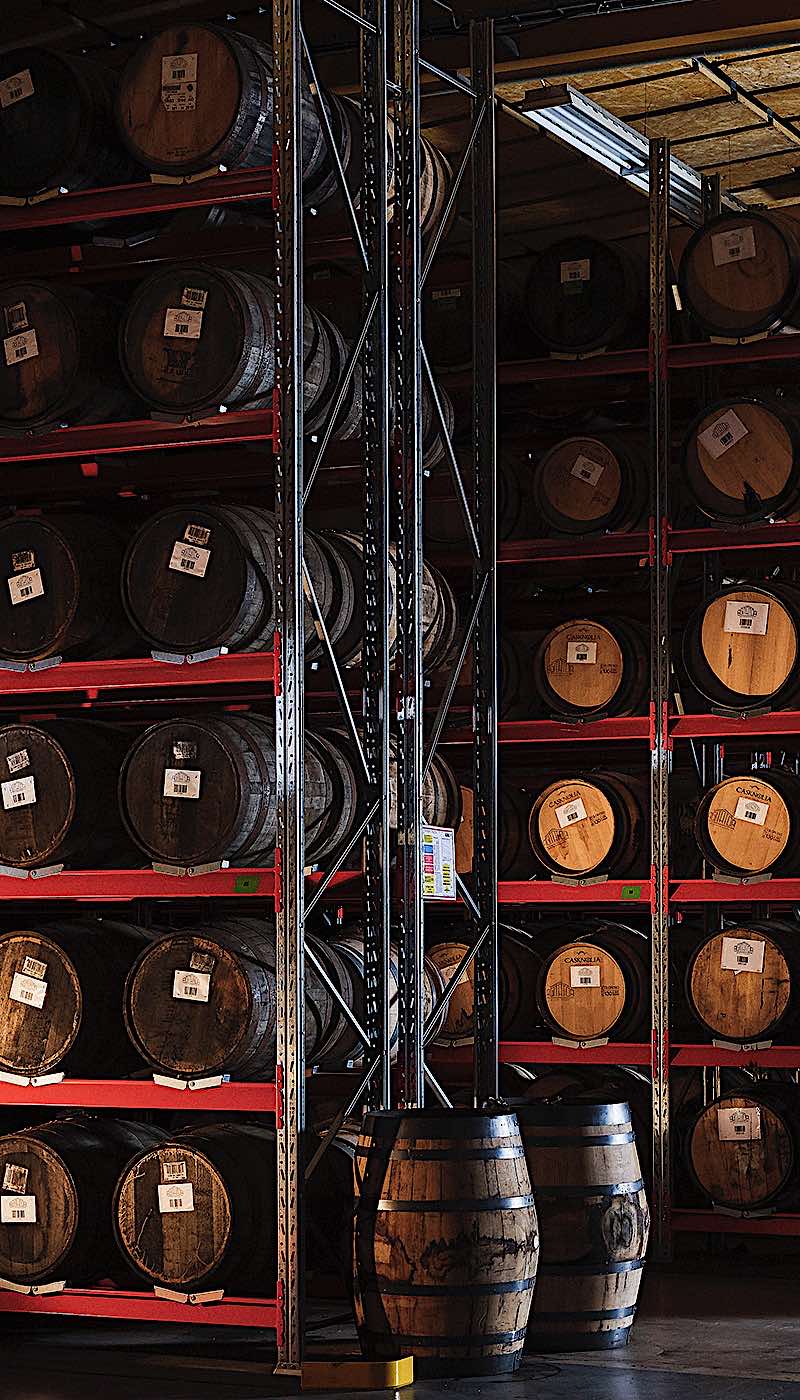MATURATION

To give the whisky its final flavour and character, the maturation on casks is one of the most important steps in the production process. And it is definitely the part that takes the longest time. Regulations stipulate that in order to even be called whisky, the spirit must be matured for at least three years on wooden casks. And it is not until the whisky is in the barrel that it begins to have colour. Fresh from the still, the spirit is crystal clear. It acquires colour from compounds in the wood during maturation.
Just prior to being put in the cask, the spirit is diluted with water. Following distillation, the alcohol content is 65 to 75 %, depending on which product is being produced. As a rule, we dilute it down to 55 % before filling the casks. This is lower than most distilleries. We choose to do this since important flavour compounds are easier drawn from the wood at a lower alcohol content. A lower alcohol content when filling the casks also means less water added when bottling. We have already matured and imparted flavour to that water.
Different kinds of casks give different kinds of flavours. We mature on many different kinds of cask, and the finished product is often a result of several different types of cask, the contents of which are then blended. We have not only casks of different sizes –from 500 litres down to 100 litres- but also casks that have previously held other kinds of beverages. We also have casks made from different kinds of wood, which is more unusual. In Scotland, regulations stipulate that whisky can only be matured on casks made from oak. We are less regulated and have discovered that chestnut yields marvellous results, with flavour as well as with colour.
Most of our casks hold 200 litres, and previously held American Bourbon. Second come our casks from new American oak, the insides of which are heavily toasted. We have the classical type with a smooth inside as well as casks with grooves milled on the inside, like enlarged corduroy. This increases the surface of the wood. And if the spirit has more contact with the wood, it matures quicker.
We like to experiment. That is why we also mature on casks that have held a large number of different, and more or less common, wines or distillates. We have casks that have held anything from ice cider or orange wine to casks that have held rum, mezcal or triple sec. Our plan is that whatever gives the best end result, will become a product that we'll put up for sale.
Our warehouse is right next to the distillery. This means a simpler and more efficient handling of the casks and extremely short transport distances. The casks are stored both standing on pallets and laying down on tall metal shelves known as pallet racks.
We work actively with warm temperature changes by moving excess heat from the distillery, which becomes quite hot when we run all four stills, into the warehouse. This means that during the year the warehouse temperature varies from 30°C down to almost 0°C. These changes in temperature aids maturation by making the whisky move through the porous wood and absorb compounds that add to the flavour.
